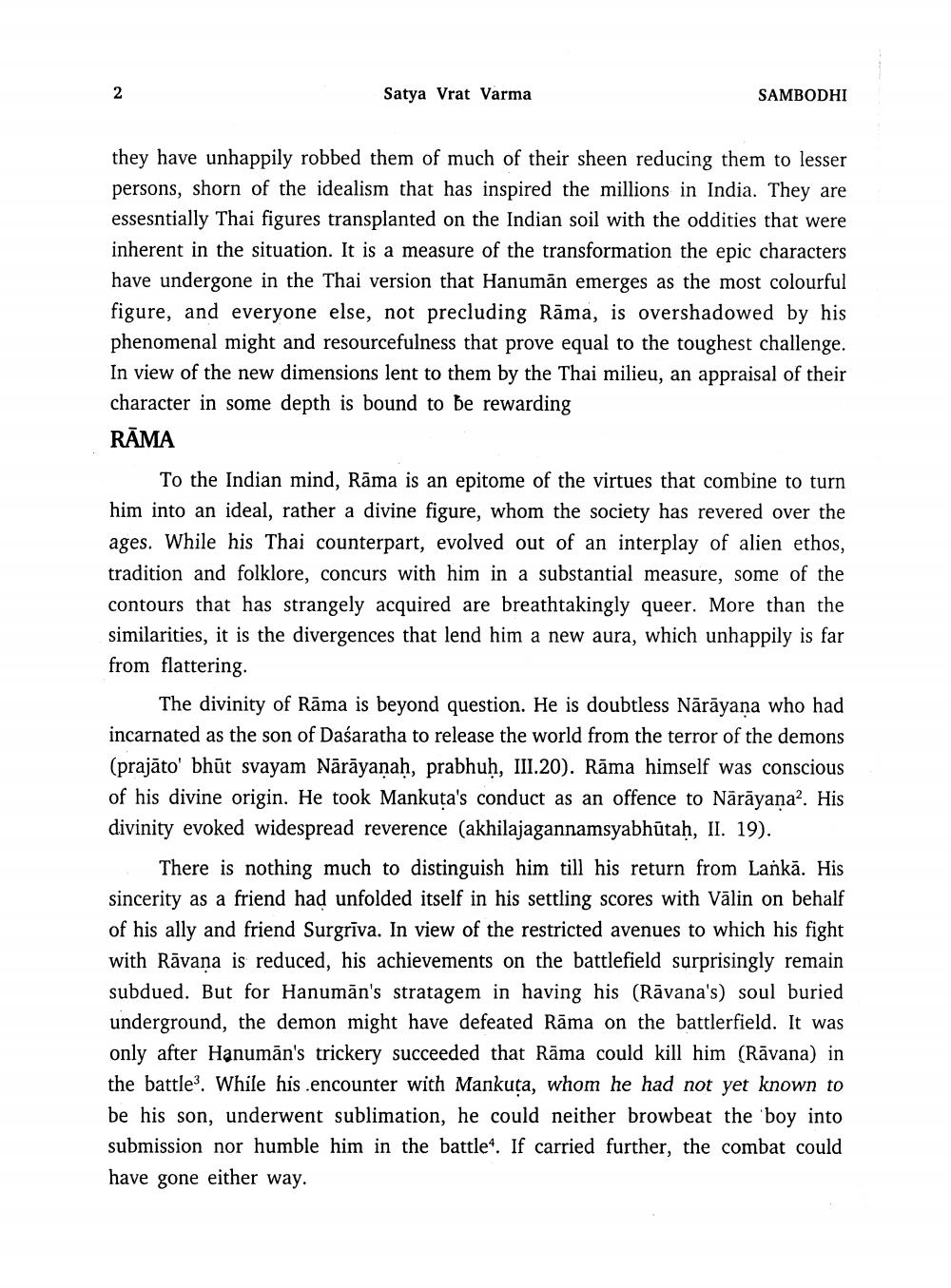Book Title: Sambodhi 2010 Vol 33 Author(s): J B Shah, K M patel Publisher: L D Indology Ahmedabad View full book textPage 8
________________ Satya Vrat Varma SAMBODHI they have unhappily robbed them of much of their sheen reducing them to lesser persons, shorn of the idealism that has inspired the millions in India. They are essesntially Thai figures transplanted on the Indian soil with the oddities that were inherent in the situation. It is a measure of the transformation the epic characters have undergone in the Thai version that Hanumān emerges as the most colourful figure, and everyone else, not precluding Rāma, is overshadowed by his phenomenal might and resourcefulness that prove equal to the toughest challenge. In view of the new dimensions lent to them by the Thai milieu, an appraisal of their character in some depth is bound to be rewarding RĀMA To the Indian mind, Rāma is an epitome of the virtues that combine to turn him into an ideal, rather a divine figure, whom the society has revered over the ages. While his Thai counterpart, evolved out of an interplay of alien ethos, tradition and folklore, concurs with him in a substantial measure, some of the contours that has strangely acquired are breathtakingly queer. More than the similarities, it is the divergences that lend him a new aura, which unhappily is far from flattering The divinity of Rāma is beyond question. He is doubtless Nārāyana who had incarnated as the son of Dasaratha to release the world from the terror of the demons (prajāto' bhūt svayam Nārāyanah, prabhuh, III.20). Rāma himself was conscious of his divine origin. He took Mankuta's conduct as an offence to Nārāyana?. His divinity evoked widespread reverence (akhilajagannamsyabhūtah, II. 19). There is nothing much to distinguish him till his return from Lankā. His sincerity as a friend had unfolded itself in his settling scores with Vālin on behalf of his ally and friend Surgrīva. In view of the restricted avenues to which his fight with Rāvana is reduced, his achievements on the battlefield surprisingly remain subdued. But for Hanumān's stratagem in having his (Rāvana's) soul buried underground, the demon might have defeated Rāma on the battlerfield. It was only after Hanuman's trickery succeeded that Rāma could kill him (Rāvana) in the battle? While his .encounter with Mankuta, whom he had not yet known to be his son, underwent sublimation, he could neither browbeat the boy into submission nor humble him in the battle4. If carried further, the combat could have gone either way.Page Navigation
1 ... 6 7 8 9 10 11 12 13 14 15 16 17 18 19 20 21 22 23 24 25 26 27 28 29 30 31 32 33 34 35 36 37 38 39 40 41 42 43 44 45 46 47 48 49 50 51 52 53 54 55 56 57 58 59 60 61 62 63 64 65 66 67 68 69 70 71 72 73 74 75 76 77 78 79 80 81 82 ... 212
